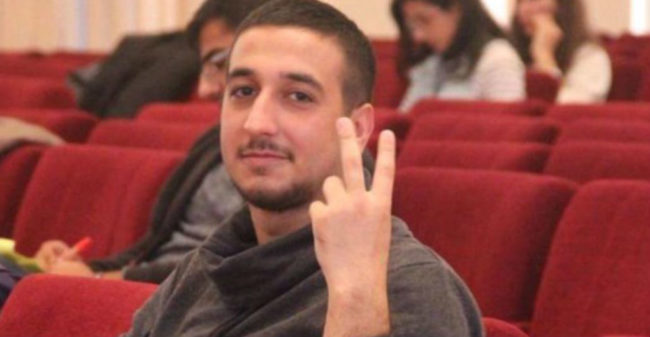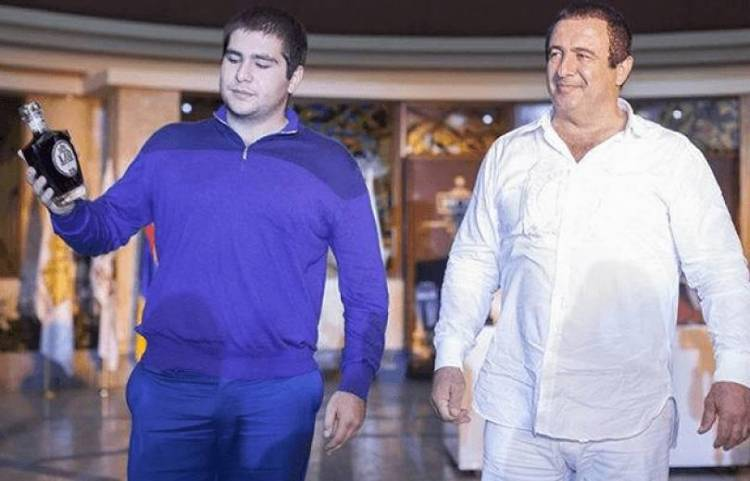
 Azerbaijan’s highest court, the Supreme Court, decided on 4 April to hear an appeal from human rights activist Bayram Mammadov. Mammadov was sentenced last year to 10 years in prison on charges of ‘drug trafficking’.
Azerbaijan’s highest court, the Supreme Court, decided on 4 April to hear an appeal from human rights activist Bayram Mammadov. Mammadov was sentenced last year to 10 years in prison on charges of ‘drug trafficking’.
The official date of Mammadov’s hearing has not yet been set, but Caucasian Knot quoted Mammadov’s lawyer as saying that the hearing is likely to be held in May or June.
Mammadov and his fellow activist, Giyas Ibrahimov, were arrested on 10 May 2016, after painting controversial graffiti the night before ‘Flower Day’. Flower Day is dedicated to the birthday of Heydar Aliyev, the late national leader and father of the country’s current president, Ilham Aliyev. Last year was the 90th anniversary of his birth.
The activists had painted graffiti on a statue of Heydar Aliyev which read ‘happy slaves day’ in Azerbaijani. On the other side of the pedestal, another inscription read: ‘Fuck the system’!
Mammadov and Ibrahimov were sentenced to 10 years in prison on charges of illicit drug trafficking, in a case criticised by international rights organisations.
Baku City Court found Mammadov guilty of illegal drug trafficking and sentenced him to 10 years in prison on 8 November 2016. Later on 10 February, the Baku Court of Appeals upheld the verdict.
His lawyer claims Mammadov is ‘obviously not a drug dealer’. According to him, the police ‘did not bother to establish either a source of drugs or a potential client base’.
Both Mammadov and Ibrahimov are members of N!DA (exclamation in Azeri) — a youth opposition movement active on social media that is highly critical of the government.
Despite the drug trafficking charges, international rights organisations, including Amnesty International and Human Rights Watch (HRW), consider Ibrahimov and Mammadov prisoners of conscience, and believe that the drug charges against them were fabricated with the sole purpose of punishing them for their political activities.
According to HRW’ annual report, the Azerbaijani government has ‘continued its thorough crackdown on dissenting voices throughout 2016, leaving a wide gap in Azerbaijan’s once vibrant independent civil society’.




 5 April 2017
5 April 2017


